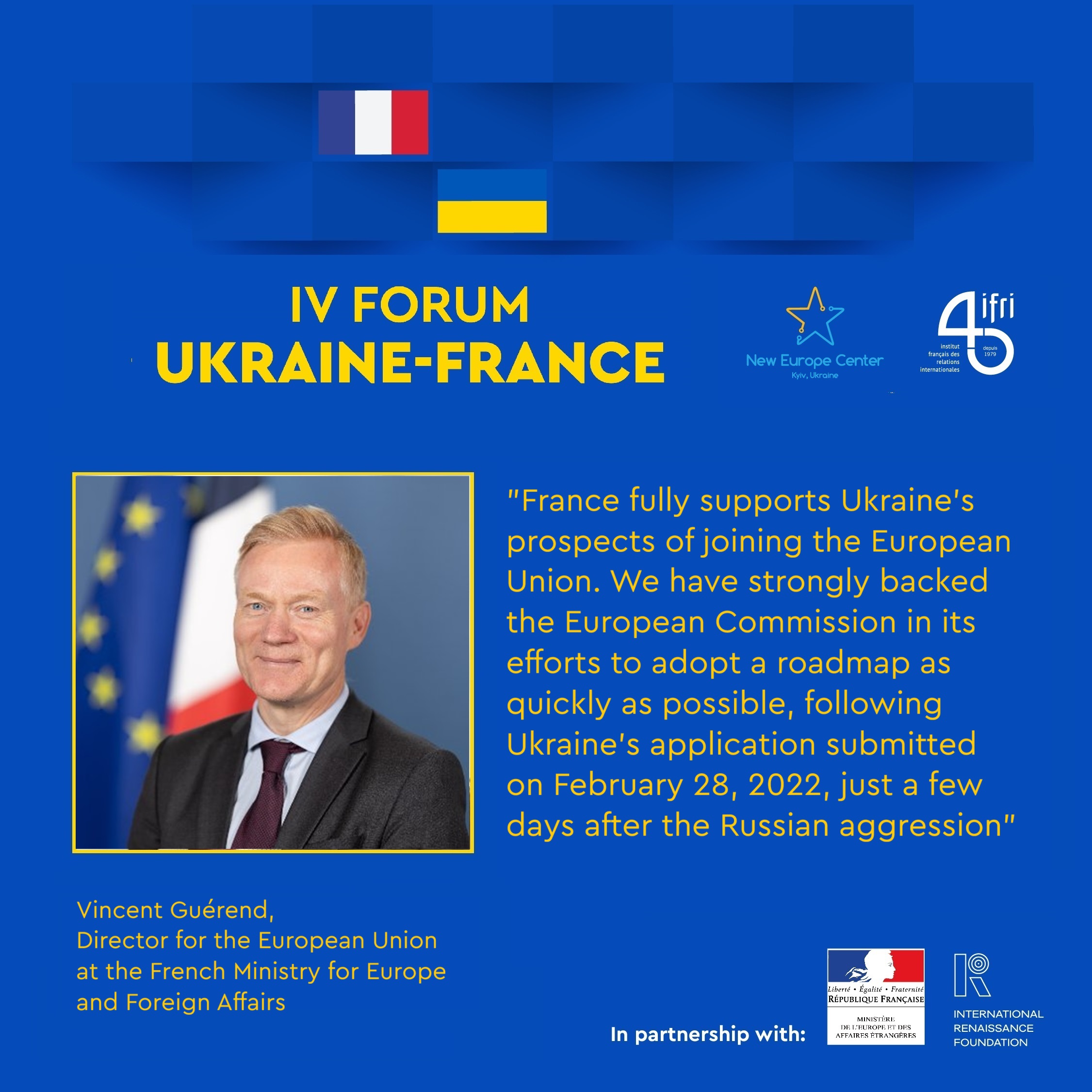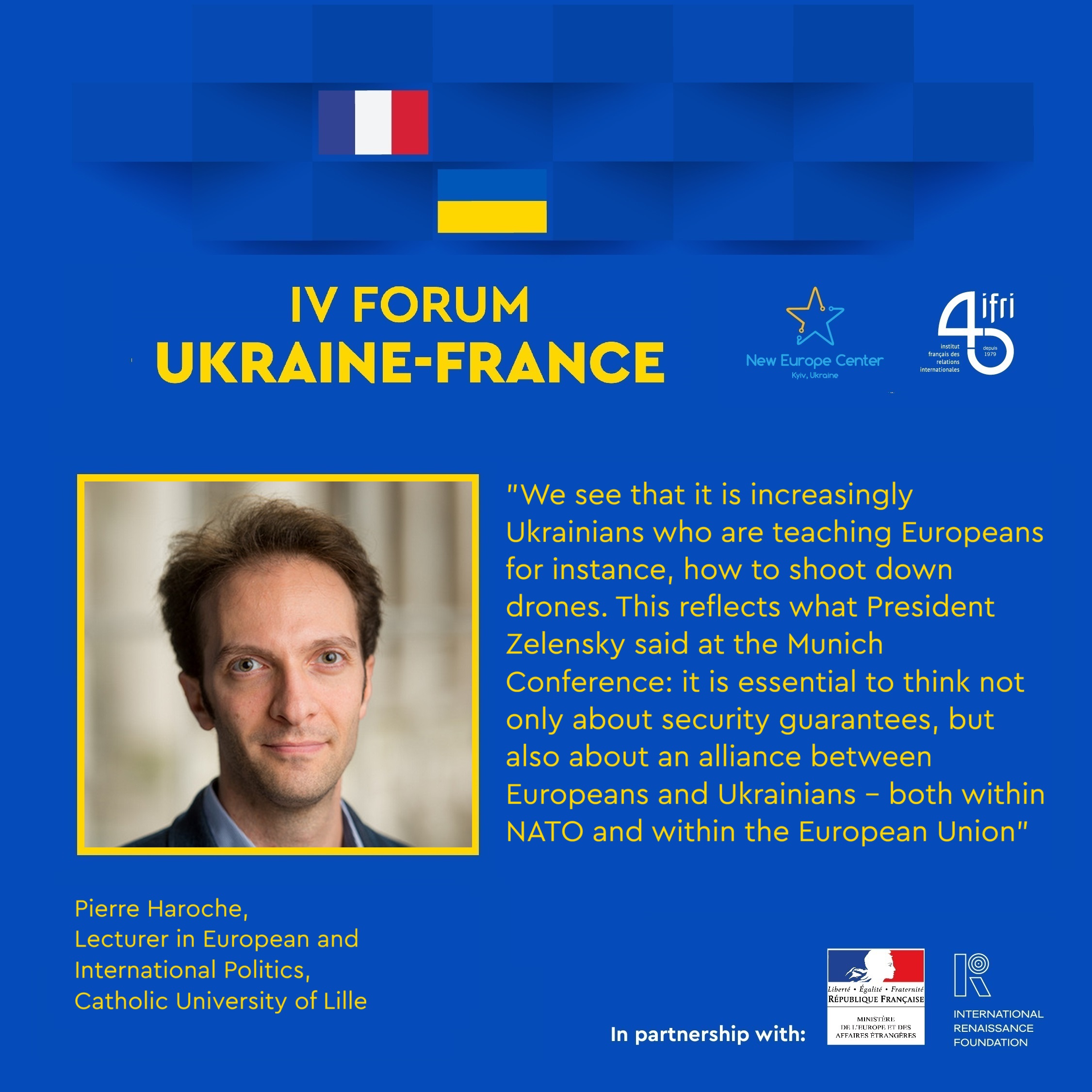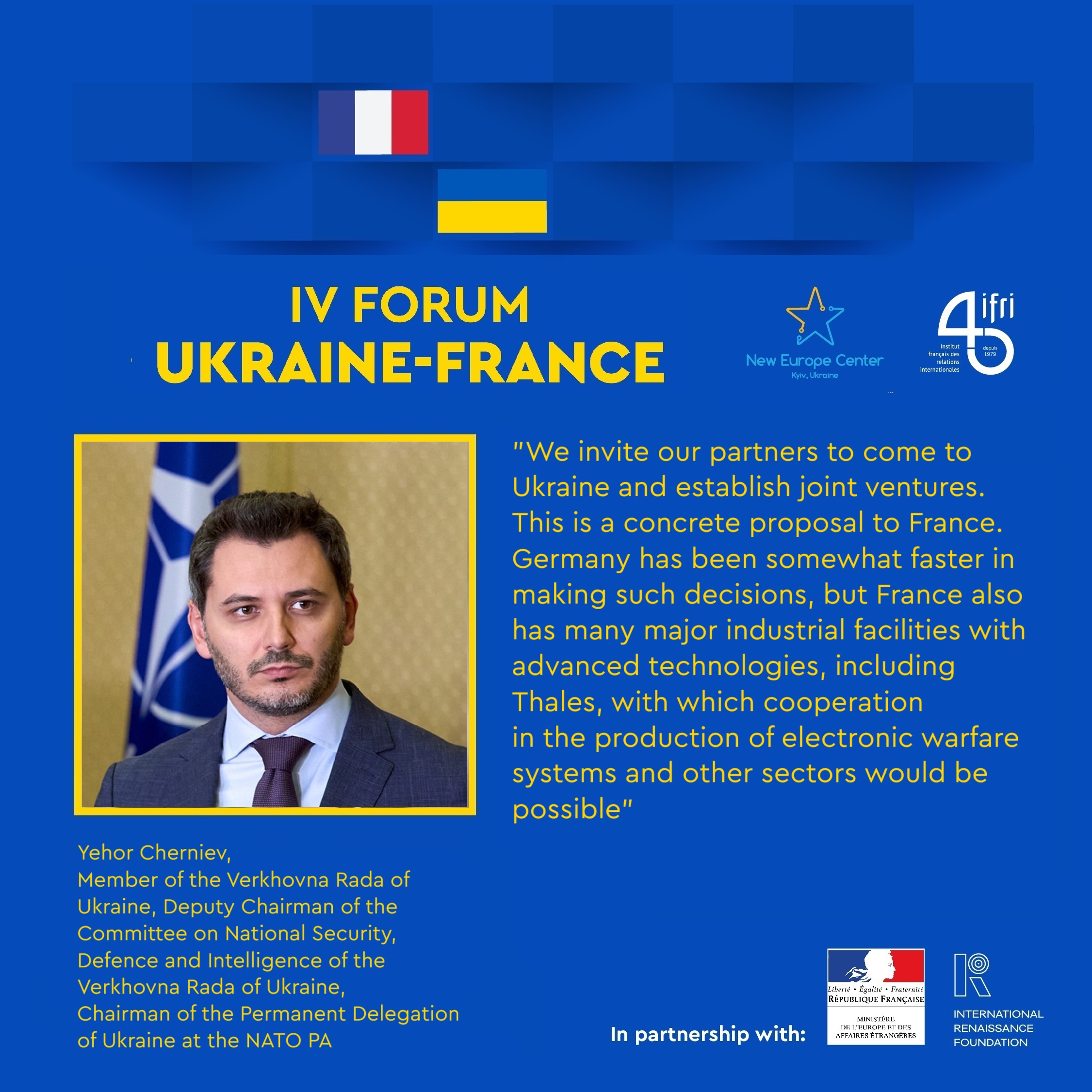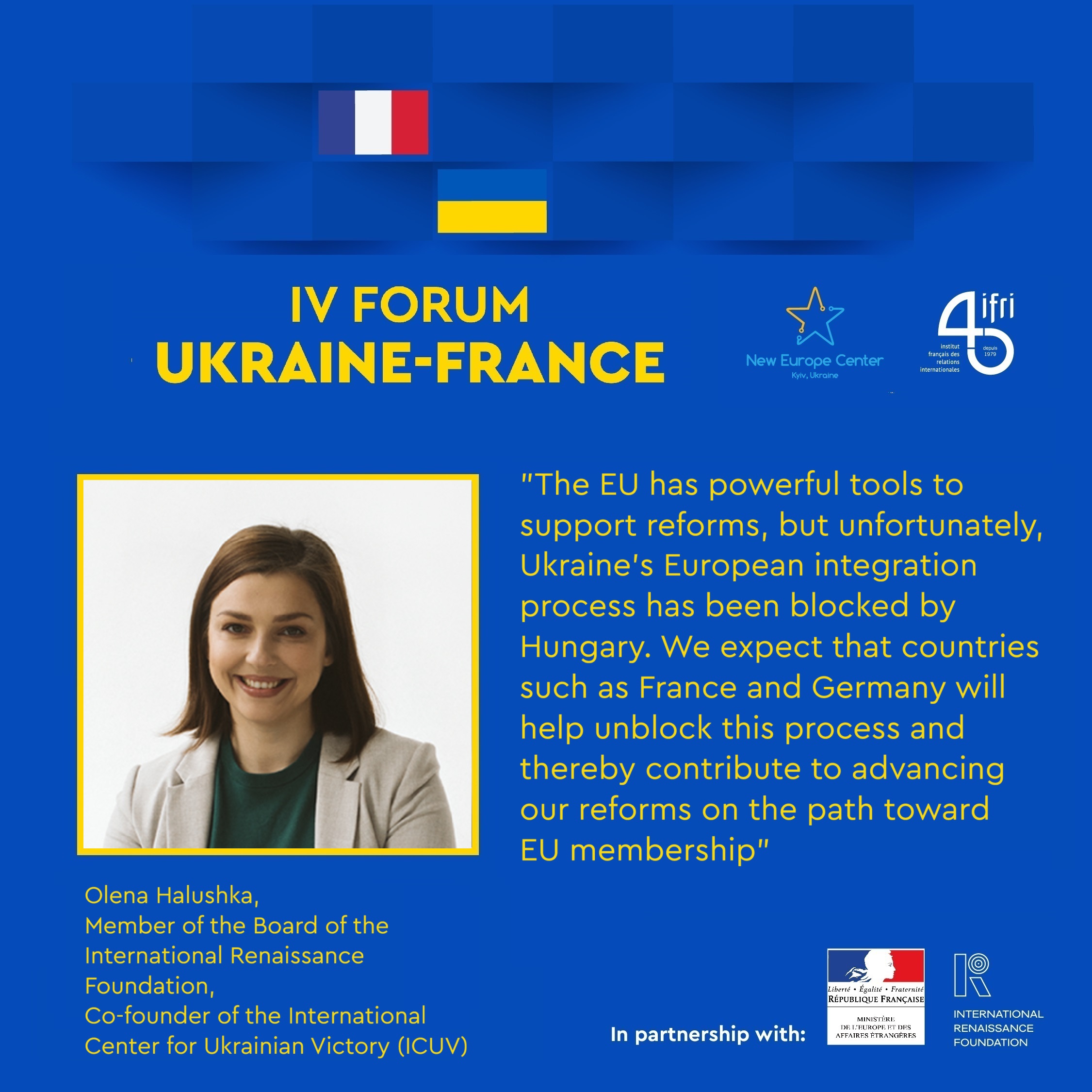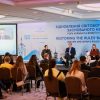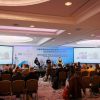Ukraine is confidently advancing toward membership in the European Union and NATO, proving its ability not only to defend itself but also to strengthen Europe’s security. Representatives of government and civil society institutions from France and Ukraine discussed how the combination of political will, reforms, and partnership can enhance the shared resilience of the transatlantic space.
Below are the key insights from the panel “Transatlantic perspectives: EU accession process and NATO aspirations” at the 4th Ukraine-France Forum.
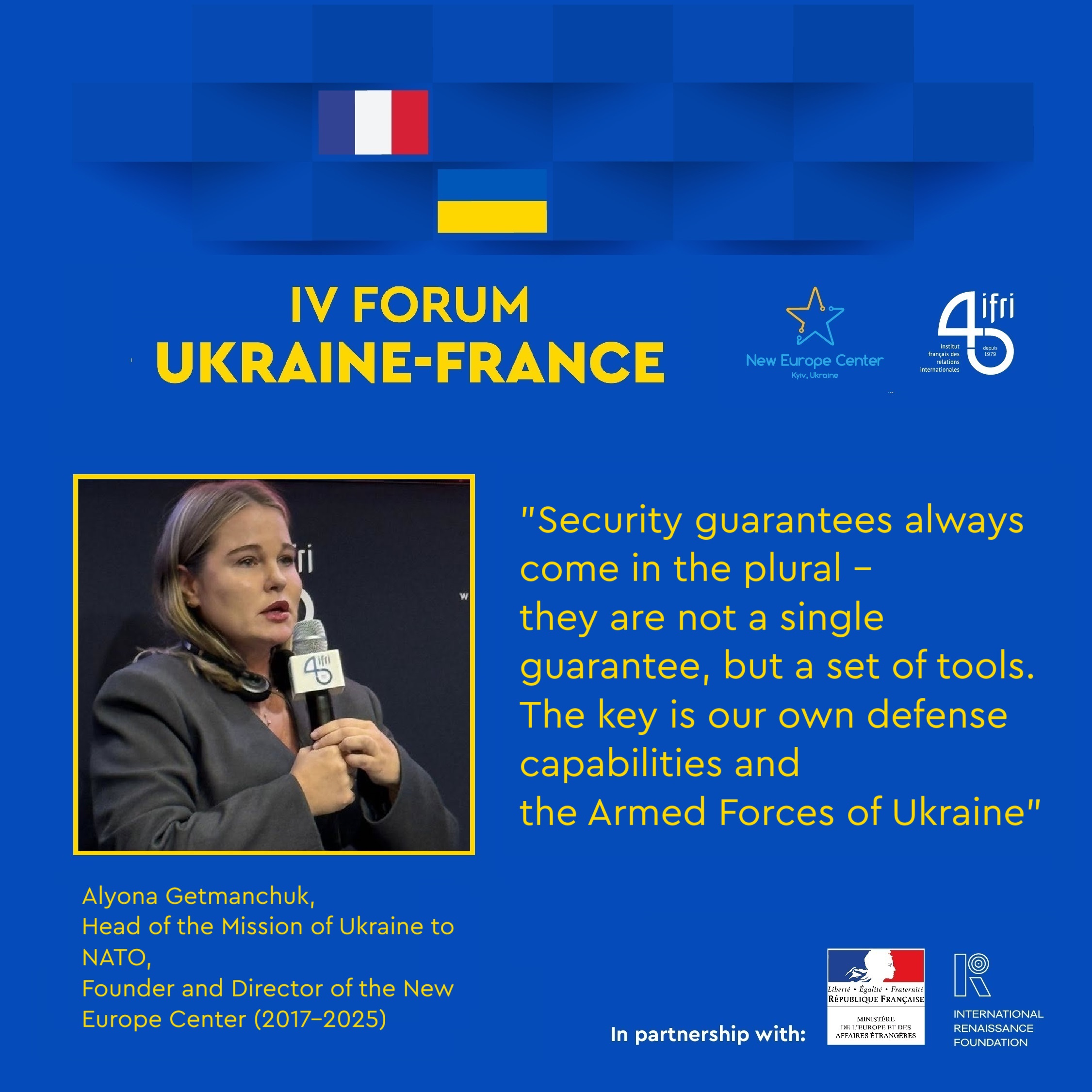
Alyona Getmanchuk, Head of the Mission of Ukraine to NATO:
- It is crucial for Ukraine that the prospect of NATO membership remains on the table. This is about much more than security guarantees. It is about ensuring Ukraine’s right, as a sovereign state, to choose its own future;
- Ukraine and NATO are currently focused on practical steps. Ukraine highly values the PURL initiative. Another top priority is attracting investment in Ukraine’s defense industry, particularly drone production. The current funding needs stand at $6 billion;
- Security guarantees always come in the plural — they are not a single commitment, but a set of tools. The core lies in Ukraine’s defense capabilities and its Armed Forces, complemented by EU accession, sanctions, and other mechanisms;
- It is vital to ensure that Russia will fear not only launching a new offensive but is also deprived of the capacity to do so. Russia must clearly understand that attacking Ukraine makes no sense, as it will never become part of a renewed Russian empire. The long-term solution to this lies in Ukraine’s membership in the EU and NATO;
- France’s support for Ukraine’s path toward EU and NATO membership represents a serious historic step – far-sighted and strategic. This is already visible in the EU dimension, and there is confidence the same will hold true for NATO accession.
Vincent Guérend, Director for the European Union at the French Ministry for Europe and Foreign Affairs:
- France advocates the consistent application of the Copenhagen criteria as the pan-European foundation for assessing the readiness of candidate countries for EU accession, including the rule of law and economic capacity to integrate into the single market;
- France has consistently supported Ukraine’s membership prospects and is taking decisive steps to accelerate the negotiation process and provide technical assistance;
- France’s practical support plays an important role: technical assistance through the embassy, expert visits for institutional training, and guidance in meeting EU integration requirements;
- Paris is working to consolidate positions within the EU and to persuade skeptical capitals, particularly in cases of political divergence;
- The development of French-Ukrainian cooperation serves as an important instrument for supporting reforms, institutional resilience, and economic recovery.
Pierre Haroche, Lecturer in European and International Politics, Catholic University of Lille, France:
- Development of joint European-Ukrainian industrial projects: it is essential to actively engage French and other European companies in joint defense ventures in Ukraine, particularly in electronics, electronic warfare, and radar technologies;
- Integration of Ukraine’s combat experience into NATO training: Ukraine’s practical expertise in air defense and drone operations should be translated into training programs for European forces; joint exercises and knowledge exchange should be prioritized;
- France’s role as a cooperation catalyst: France can serve as both a technical and political leader in advancing initiatives on joint procurement, training, and industrial cooperation with Ukraine;
- The EU should define its specific role in ensuring European security alongside NATO – through coordination mechanisms, procurement frameworks, and the deployment of shared capabilities.
Yegor Cherniev, Member of the Verkhovna Rada of Ukraine, Deputy Chair of the Committee on National Security, Defence and Intelligence, Head of the Permanent Delegation of Ukraine to the NATO Parliamentary Assembly:
- Ukraine is not only a recipient but also a provider of security solutions. The country has accumulated unique combat experience that can benefit its allies. In three years of full-scale war, Ukrainian forces have made significant technological and tactical progress, adapting to modern warfare and often outpacing partners in innovation;
- Ukraine invites partners, including France, to establish joint defense technology enterprises. This will foster industrial development, create jobs, and strengthen collective security;
- The growing security threat to Europe is evident. Russia’s provocations, including violations of NATO airspace, demonstrate that Moscow will not stop at Ukraine. Europe must prepare for systemic defense without total dependence on the United States;
- Ukraine calls on partners to adopt a decisive strategy: to provide long-range capabilities, intensify sanctions pressure, and acknowledge that the only path to peace is the defeat of the Russian Federation.
Olena Halushka, Board Member at the International Renaissance Foundation, Co-founder of the International Center for Ukrainian Victory (ICUV), and Board Member at the Anti-Corruption Action Center (AntAC), Ukraine:
- The European Union holds powerful tools to stimulate change in Ukraine, yet the integration process is currently effectively blocked by the political decisions of individual member states. Ukraine expects support from countries like France and Germany to unblock the process and open the first negotiation clusters;
- Ukraine is actively reforming: renewing the composition of the Constitutional Court, reforming judicial governance, and conducting transparent competitions for key anti-corruption and economic positions. The next priority is customs reform, which will strengthen the state’s internal resources;
- Confiscation of Russian assets as a source of recovery. Through the international Make Russia Pay campaign, Ukraine is working to establish legal mechanisms for seizing and redirecting frozen Russian assets toward the country’s reconstruction.
Dimitri Minic, Researcher, Russia/Eurasia Center, Ifri, kindly moderated the session.
Watch the recording in Ukrainian: https://cutt.ly/JrMLTgUJ
The Forum is organized by the New Europe Center in partnership with Ifri with the support of the French Ministry for Europe and Foreign Affairs. For this event, the New Europe Center is supported by the International Renaissance Foundation.



